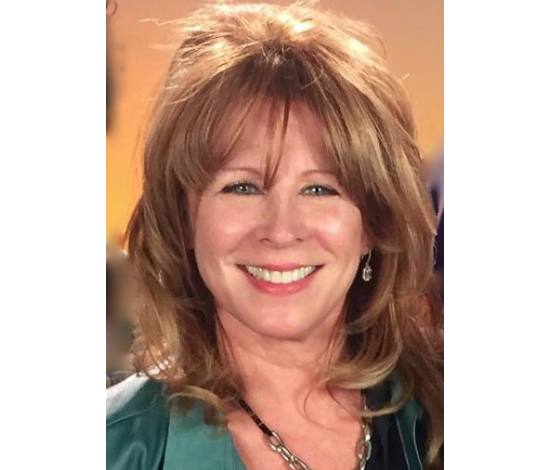Like the cicada, which lies dormant for 13 or 17 years and then suddenly makes a cacophonous comeback, feminism is having a moment. It’s announcing itself on magazine covers, dominating discussions on culture blogs and, in one case, making itself known in huge, lighted letters spelling “feminist” as Beyonce performed at the Video Music Awards.
In the last few weeks, several displays of what used to be called “consciousness raising” have made major headlines. On Sept. 19, the White House announced “It’s On Us,” a campaign meant to combat sexual assault on college campuses. A few days later, a Columbia University student who’s been lugging a mattress around as an act of protest against the school administration’s failure to expel her alleged rapist appeared on the cover of New York magazine.
Then of course there was actress Emma Watson’s speech at the United Nations in New York on Sept. 20. Watson, who holds the title of U.N. women goodwill ambassador, spoke nervously but powerfully about gender inequality and rolled out “He for She,” an initiative meant to invite men into conversations about ending violence and discrimination against women and girls.
The speech immediately went viral, and just as fast, hackers threatened to release nude photos of Watson. That turned out to be a hoax, but the blogospheric consensus was that the threat served as further proof that sexism and even downright misogyny are just as bad as they were in the “Mad Men” era, if not the Paleolithic era.
Regardless of whether there are more misogynists out there than ever, it’s undeniable that there have never been more microphones into which woman-haters can express themselves, and into which women, in turn, can defend themselves. No longer confined to marches, living-room rap sessions or fusty news magazine cover stories asking “Is Feminism Dead?” the cause has become as viral as the videos and Internet memes that purport to speak for it.
The go-to celebrity interview now: “Do you consider yourself a feminist?” (Miley Cyrus is a “yes”; Lady Gaga a “no.” OK then.)
Throughout it all, the “cause” tends to sound more like the atonal, sometimes headache-inducing drone of cicadas than the harmonizing singalong that Beyonce and movements like “He for She” seem to be pushing for. Even as the mainstream media praised Watson for the inclusive spirit of her remarks — Vanity Fair called the speech a “game changer” — many edgier and often younger feminists accused her campaign of being too “heteronormative,” too heavily invested in the patriarchal status quo and in men who’ve had their chance and blown it.
In a post called “Feminism shouldn’t make men comfortable,” a male blogger for the website Feministing wrote, “It isn’t that men haven’t been called to the conversation but rather that they’ve constantly rejected the invitation.”
If you’re rolling your eyes right now, chances are you, like me, are Of A Certain Age. While I’m not old enough to have marched for “women’s lib” in the 1970s, I remember enough about 1990s-era political correctness (its benefits as well as its exasperations) that I sometimes grow cranky and impatient when I see it revived in a way that can seem more reactionary than responsive.
I’m also wary of “movements” that don’t go much further than slogans, whether it’s “Lean In”-style corporate-ladder climbing or hashtag activism. In other words, I am horrified that women are demonstrably unsafe on college campuses, but I’m not sure that lugging a mattress around is the best way to effect change.
But I’m also willing to admit I don’t know what I don’t know. Maybe millennial feminists are reacting to manifestations of sexism that Gen Xers and baby boomers were less affected by (for instance, the ubiquity of pornography via the Internet). Maybe blogs like Feministing are poised to replace fusty news magazines. Maybe people who came of age before it was possible to pilfer nude photos from private accounts and share them globally have no business judging what younger people need from the world.
Or maybe, like the cicadas, the “trend” of feminism will die off almost as quickly as it has re-emerged and go dormant until the next cycle. And maybe, if we’re lucky, something more lasting than a trend will follow. That’s something every generation can probably agree on.
Tribune Newspapers
Meghan Daum
Meghan Daum has been a weekly opinion columnist for The Los Angeles Times since 2005. She is the author of the essay collection My Misspent Youth and the novel The Quality of Life Report. Her third book, Life Would Be Perfect If I Lived In That House, a non-fiction work about real estate obsession, will be published in 2010. She lives in Los Angeles.





 Hi I’m Catherine, founder of Wine Women And Chocolate. Want to become a contributor for Wine, Women & Chocolate? Interested in sharing your unique perspective to a group of supportive, like-minded women?
Hi I’m Catherine, founder of Wine Women And Chocolate. Want to become a contributor for Wine, Women & Chocolate? Interested in sharing your unique perspective to a group of supportive, like-minded women?